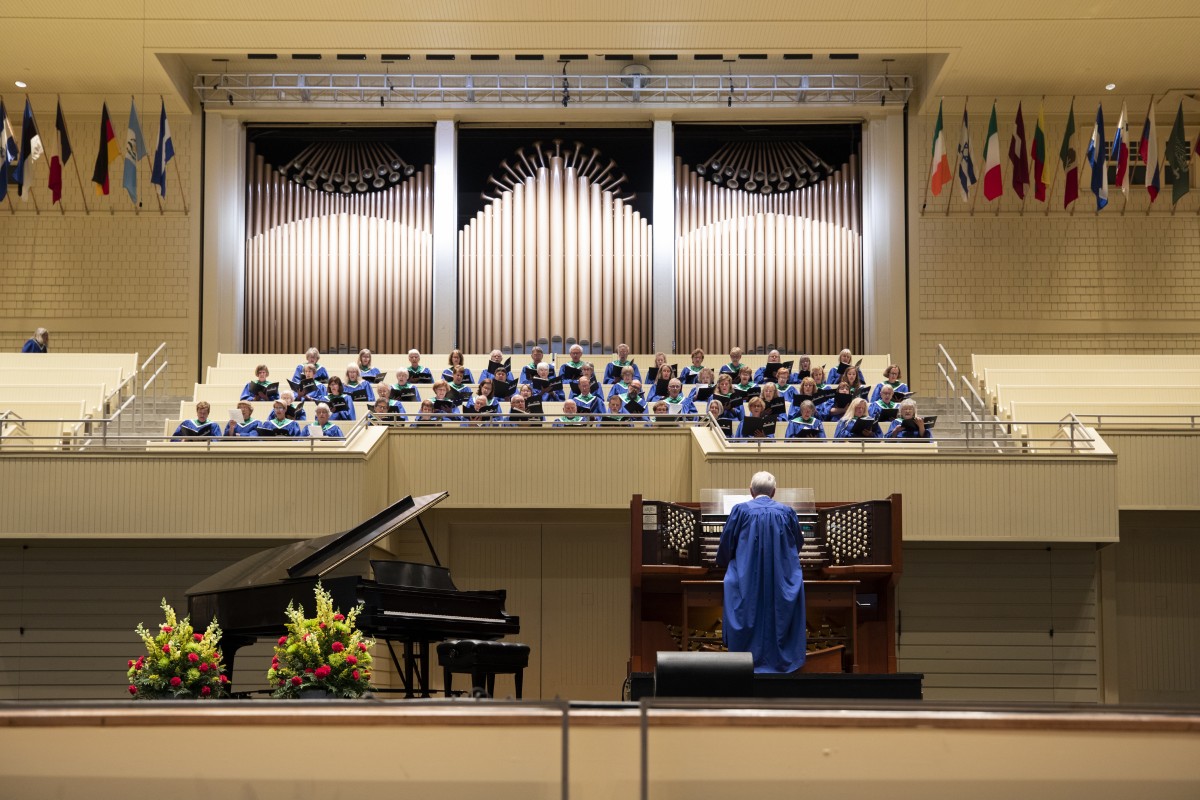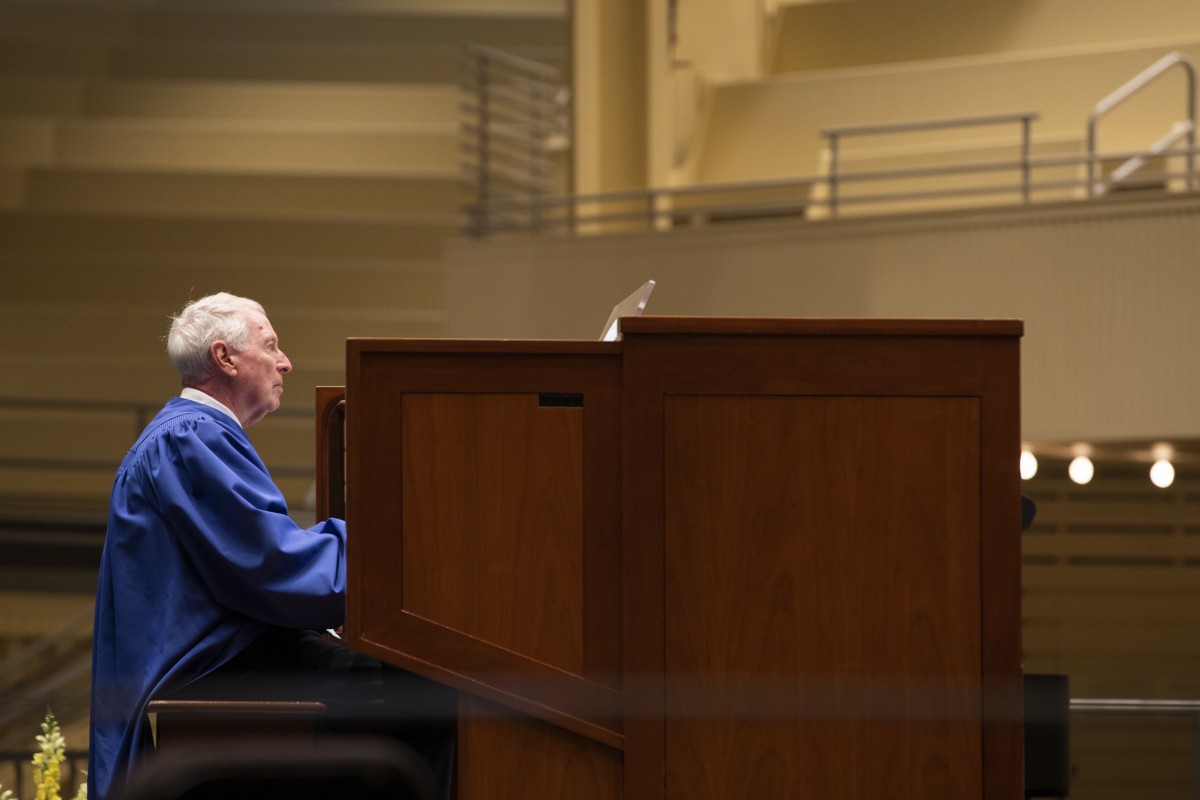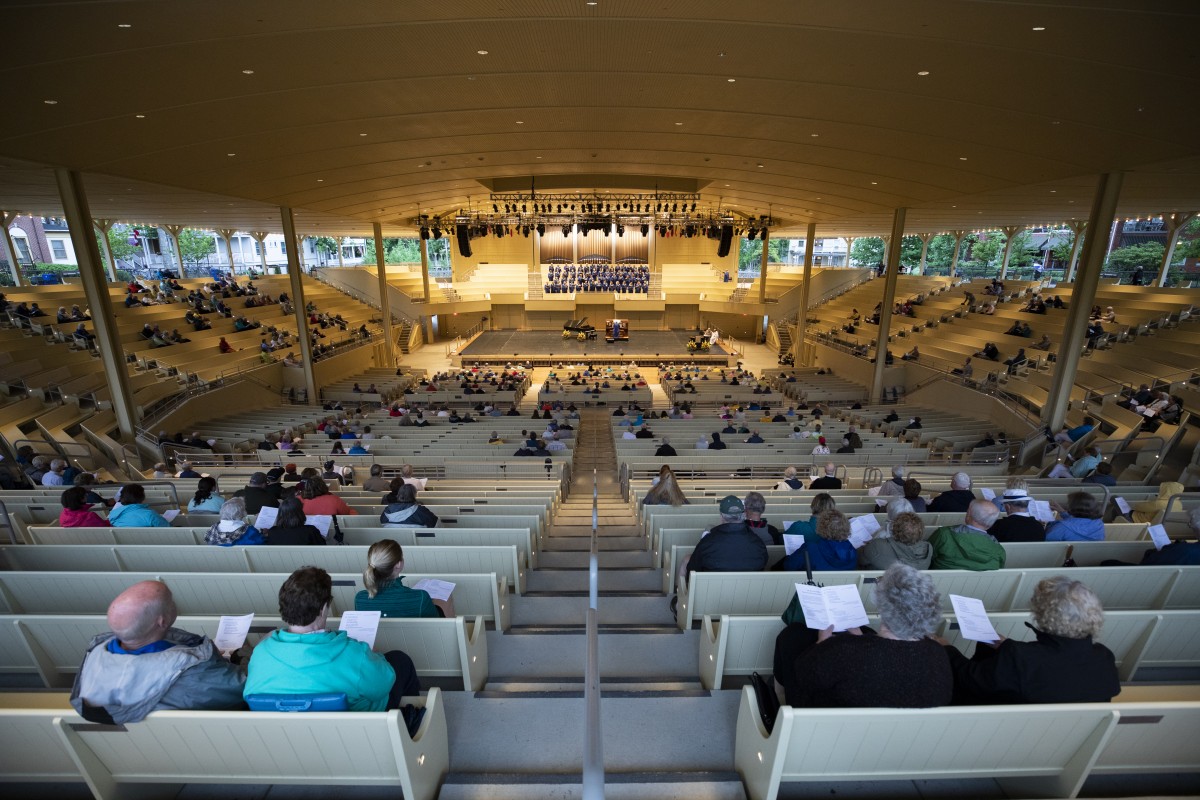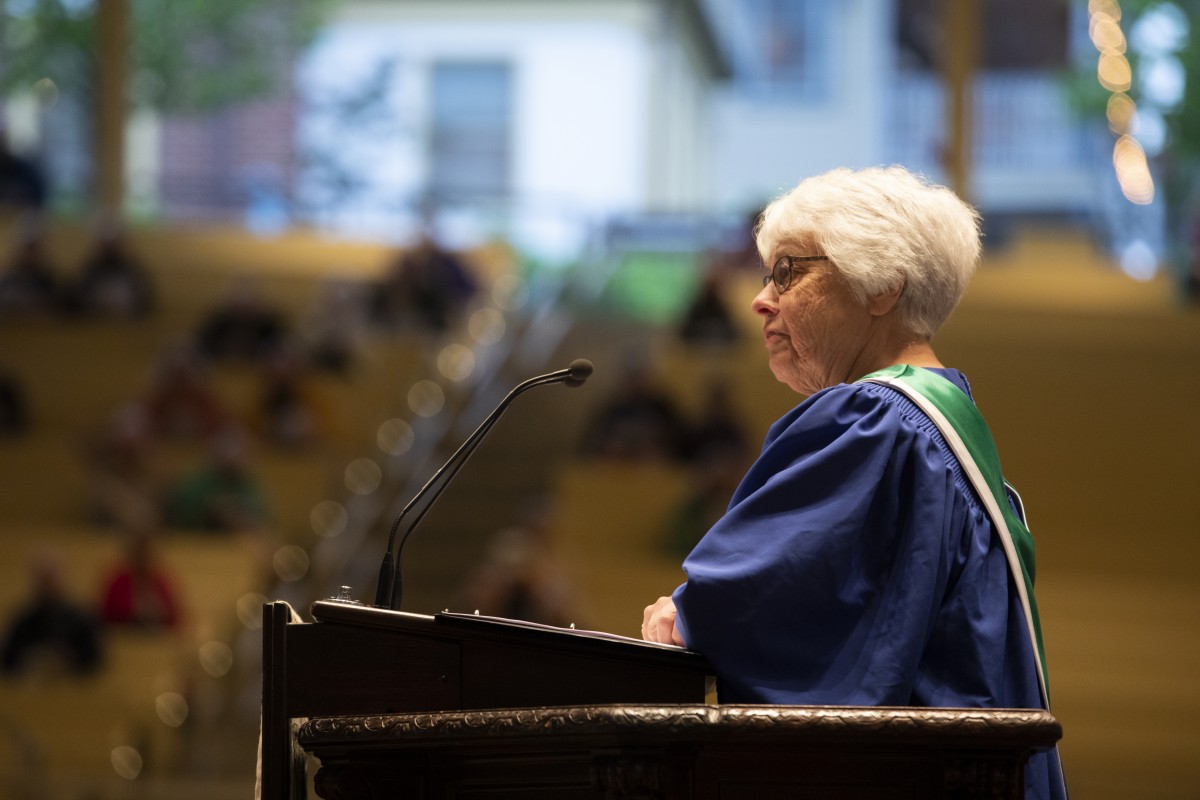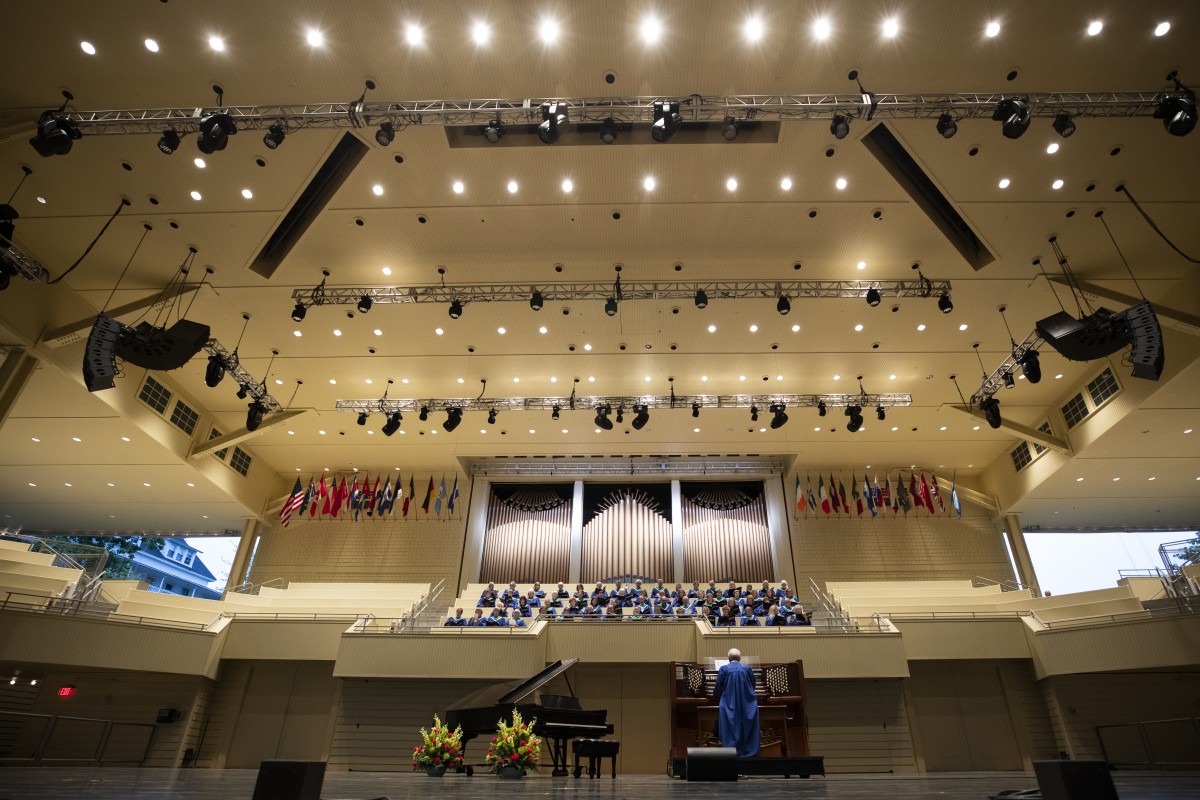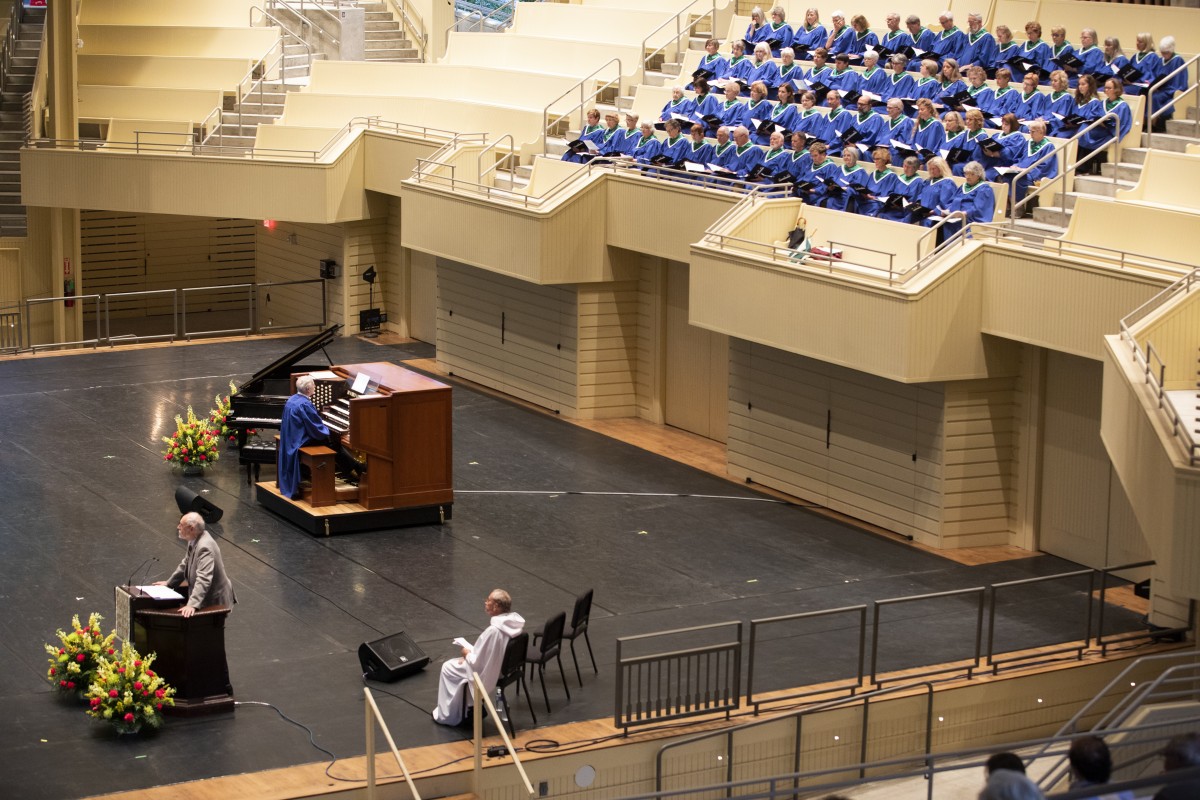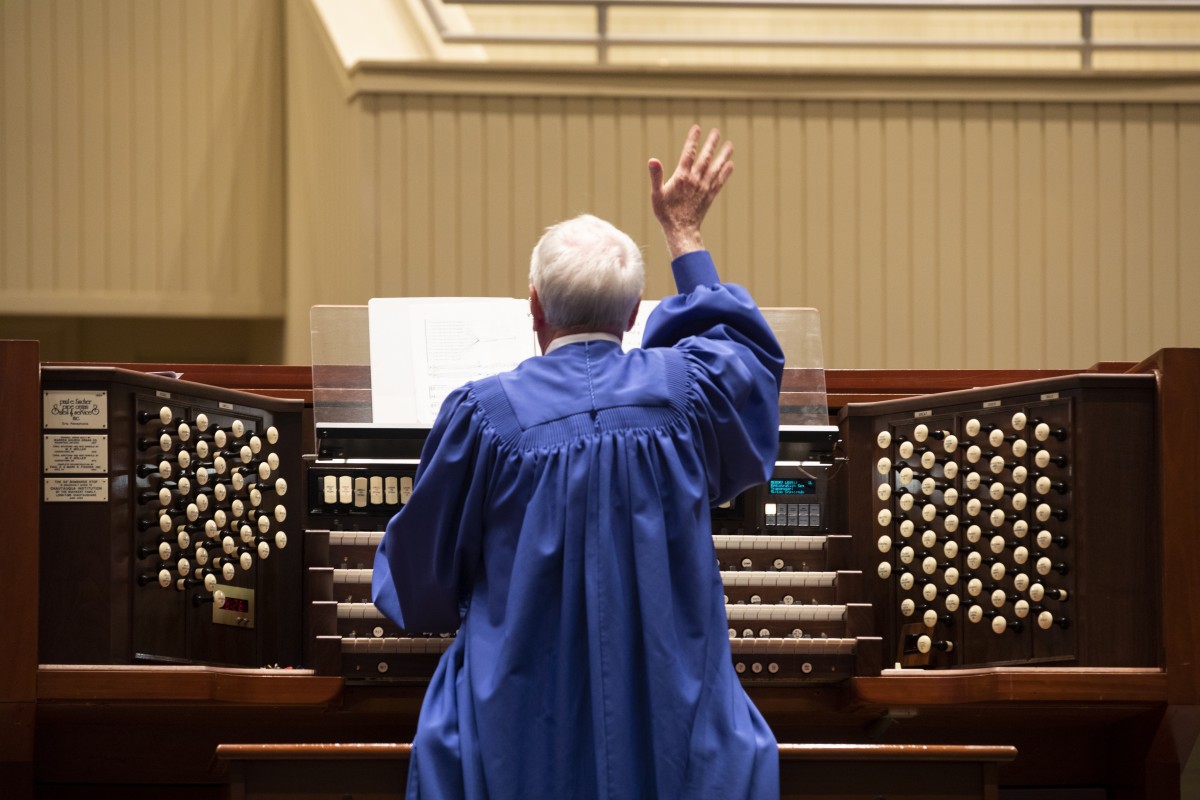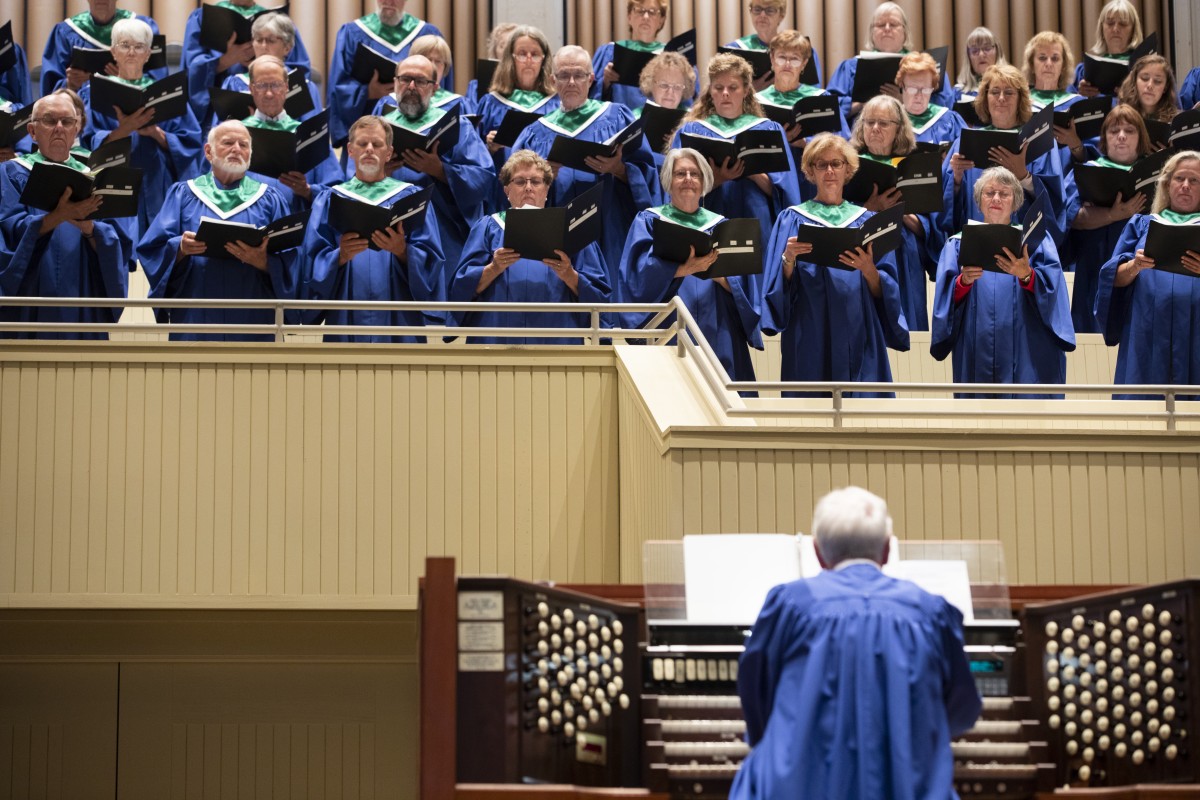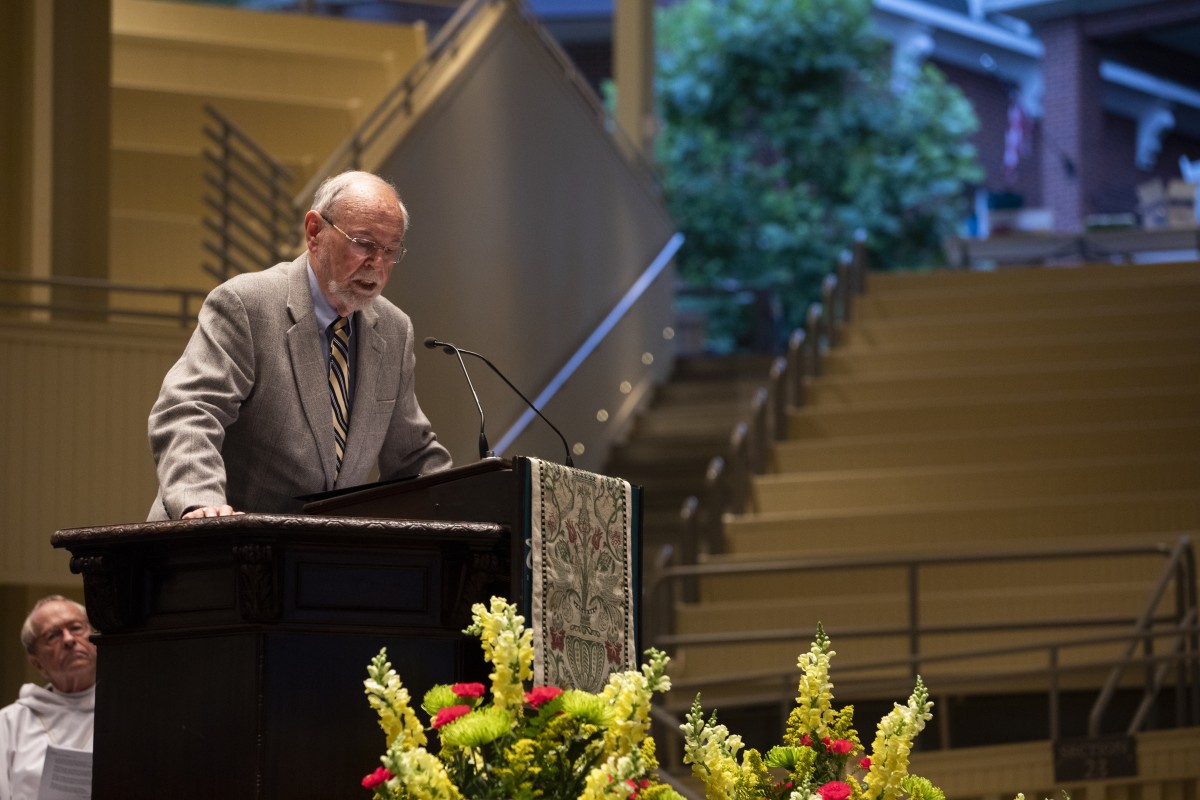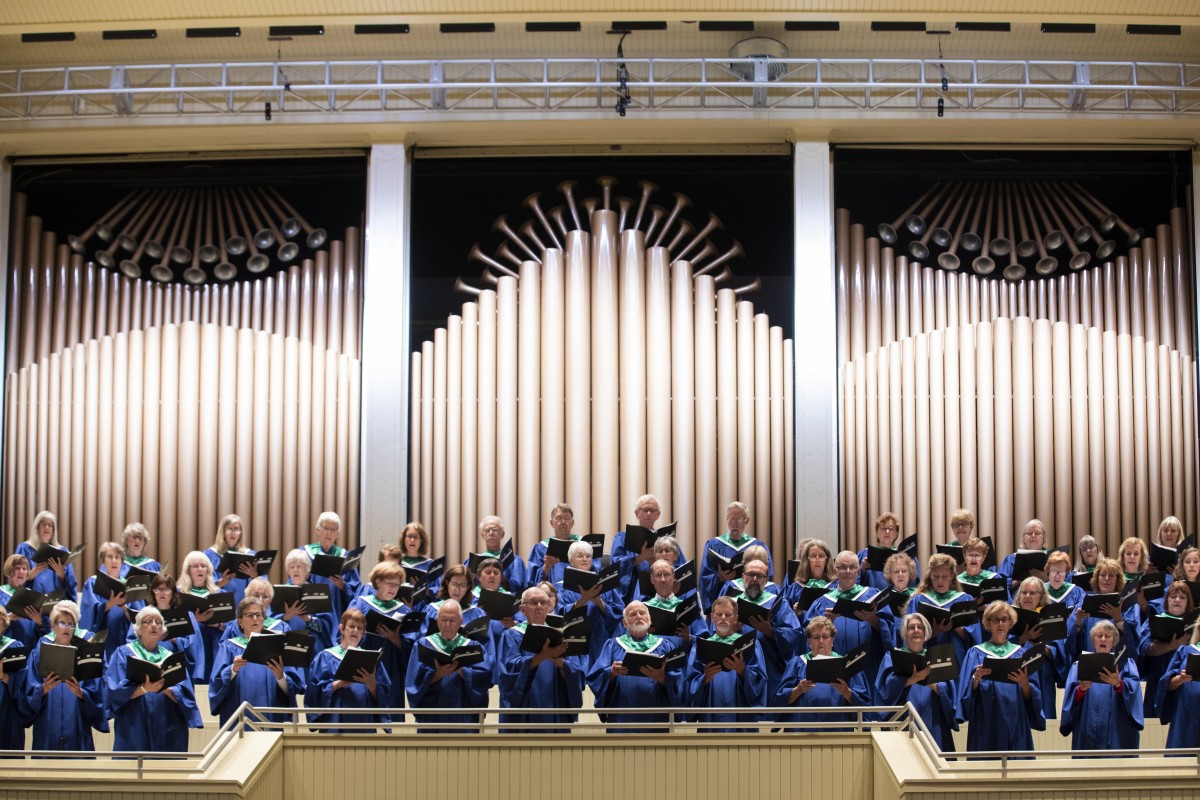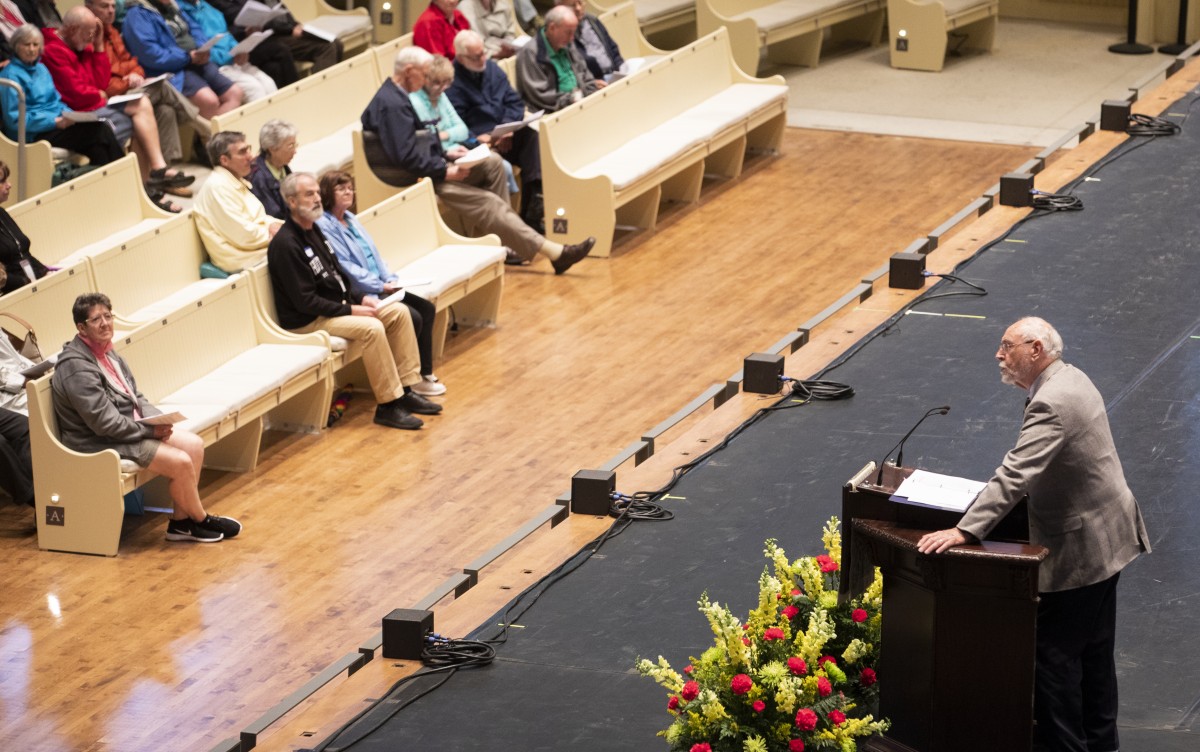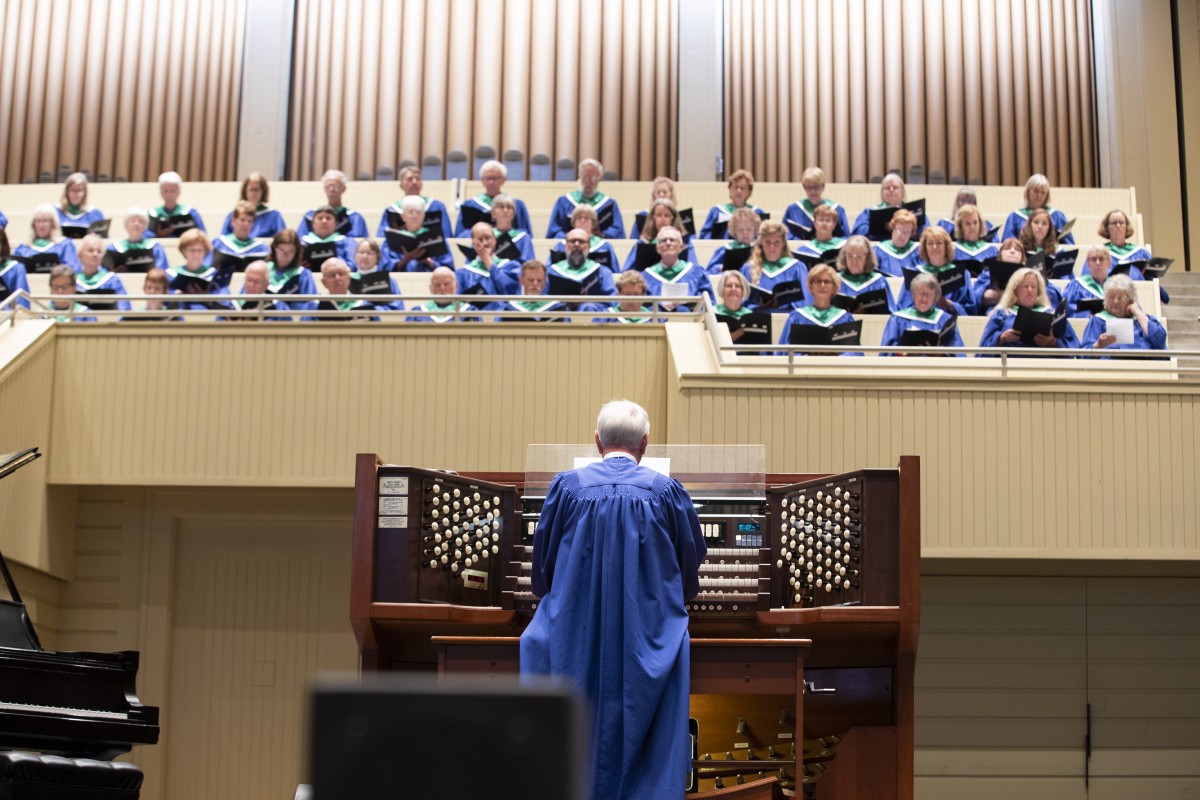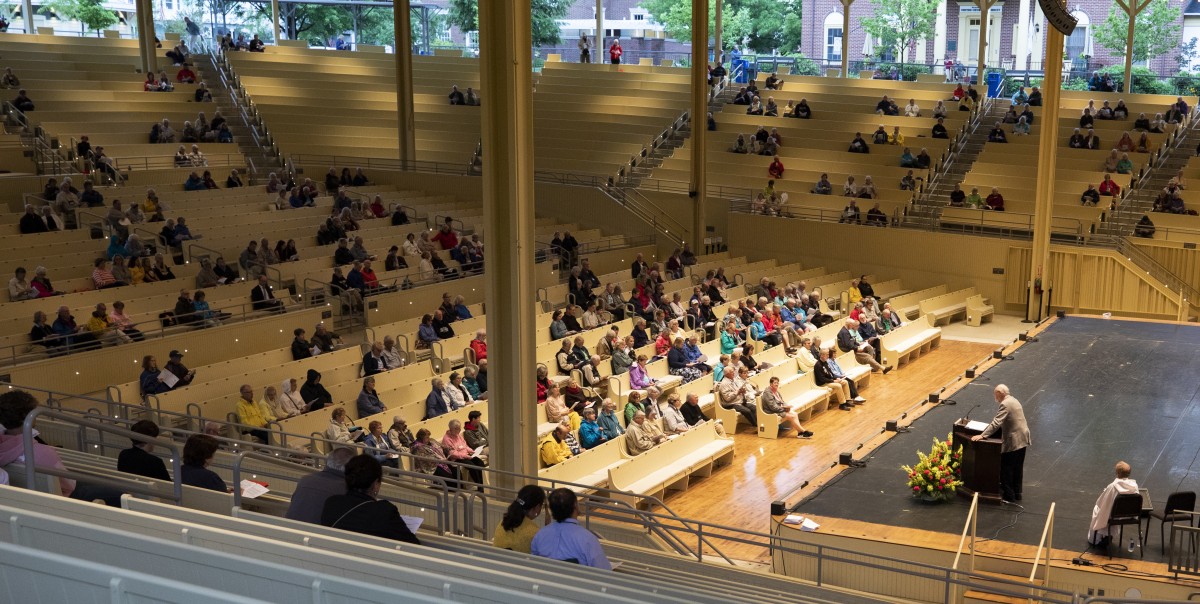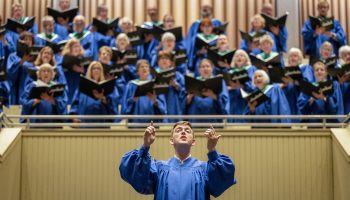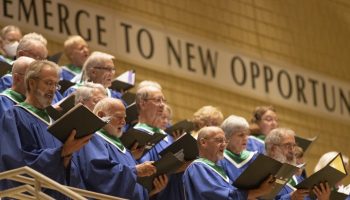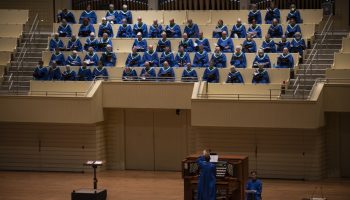A true celebration of American independence means recognizing the country’s complete history, including aspects people wish to bury.
At 8 p.m. Sunday, July 1 in the Amphitheater, Jared Jacobsen will dig deeper into that history during the Sacred Song Service “Give Me Your Tired, Your Poor.”
“We do a lot of the traditional waving of the flag, roasting of the hot dogs and shooting reworks as part of the fabric of Chautauqua,” said Jacobsen, Chautauqua Institution’s organist and coordinator of worship and sacred music. “So for the worship part of it, we have tried to help people understand that there’s more to experience than that, than just the physical trappings of the Fourth of July.”
The title of the service comes from the sonnet “The New Colossus” by Emma Lazarus, which appears on a bronze plaque on the base of the Statue of Liberty. During large waves of immigration, those arriving at Ellis Island in New York could see the famous statue and read Lazarus’ words, which extended a warm welcome.
“Send these, the homeless, tempest-tossed to me, I lift my lamp beside the golden door!” Lazarus wrote.
Jacobsen frequents Ellis Island and believes the sonnet has taken on a new meaning, given the ongoing debate over immigration.
“The whole reason for Ellis Island is much more in people’s consciousness with all of these issues that are going on with immigration,” he said. “We’ve switched the focus of it to border issues, and not so much people coming in by boat,but it is a part of who we are as a melting pot.”
He said he hopes the hymns will spark conversation among Chautauquans about immigration issues, rather than shying away from the debate. Jacobsen included “This is My Song,” a hymn by Lloyd Stone and Georgia Harkness, that speaks to a worldwide audience.
“Essentially, the hymn is telling us we don’t have an option on everything,” Jacobsen said. “We are part of a global community, but we are more than ever seeming desperate to build walls and tell people who can be there and who can’t.”
In addition to addressing immigration, Jacobsen included several African-American choral anthems to broach the topic of slavery and segregation in America.
“The choral music is really all over the map,” he said. “It’s hard to imagine any national celebration that doesn’t address the whole issue of slavery in America.”
In regard to America’s long, grueling effort to desegregate, Jacobsen noted that when Tuskegee University was established as one of the first educational institutions for black Americans, Chautauqua extended an eager invitation to the university’s choir.
“They were the first to invite the Tuskegee Choir to come and sing, and that was a gigantic step,” Jacobsen said.
To help celebrate and encourage a diverse Chautauquan community, Jacobsen’s choir will perform a “Freedom Trilogy” that encompasses a 16th-century chant, a South African song and John Newton’s hymn “Amazing Grace.”
The service will conclude, at last, with the song “Give Me Your Tired, Your Poor,” for which Irving Berlin wrote the music to accompany Lazarus’ sonnet. Though this is the second year in a row Jacobsen will perform this service for Independence Day, he said the choice was clear.
“It’s important to repeat it because we are in a different place than we were last year,” he said.
“Every time you turn around, people are asking what to do when someone new comes into this country. Do we say get out, or do we say come in? Chautauqua exists because, from the beginning, people have been saying ‘Come in.’ ”
-Jared Jacobsen, Organist, Coordinator of Worship and Sacred Music


